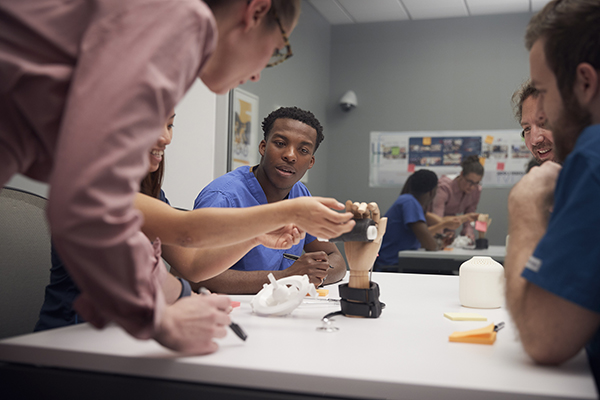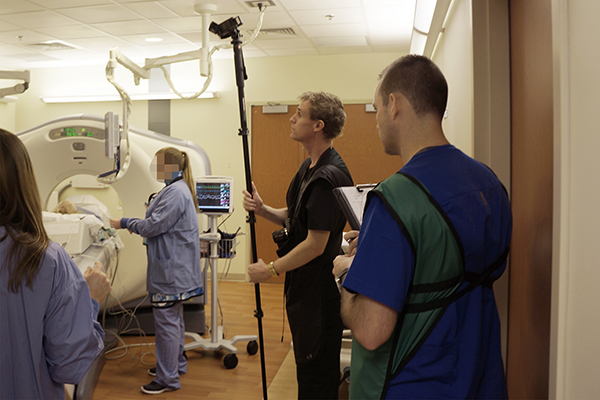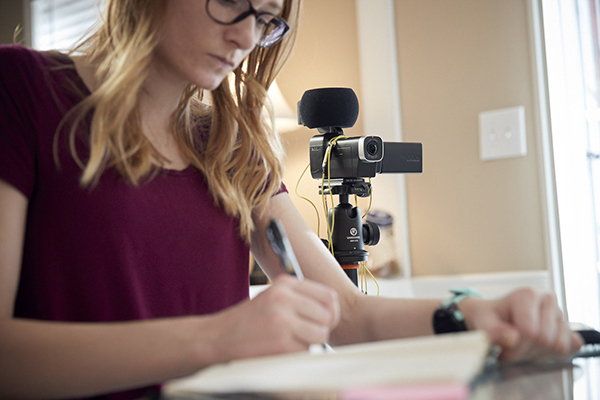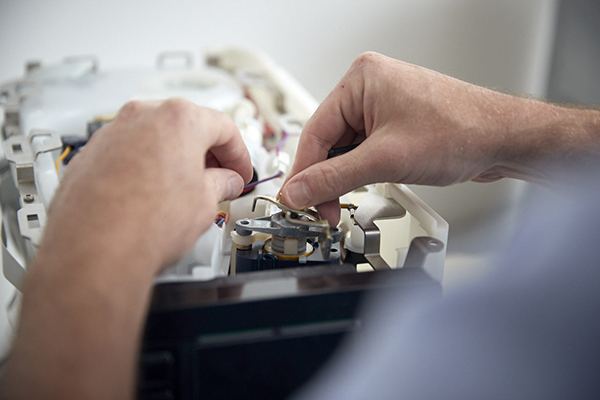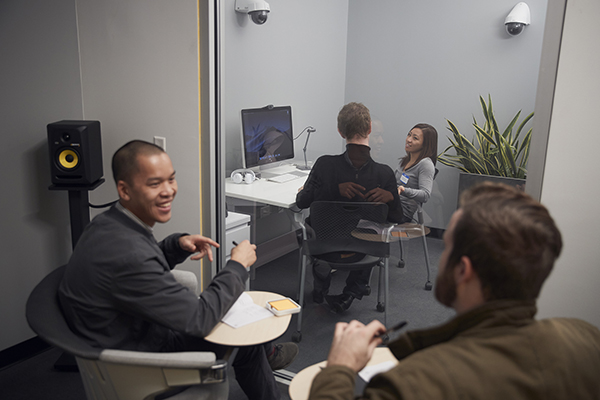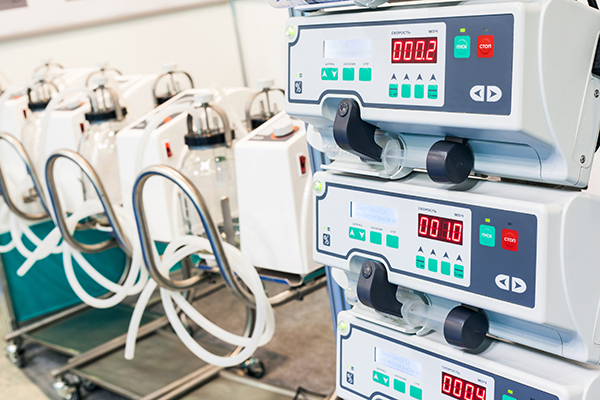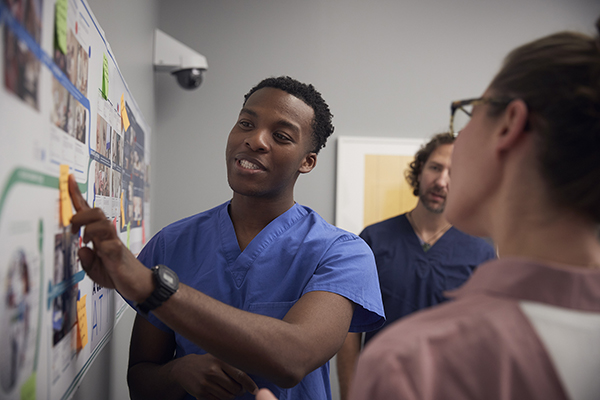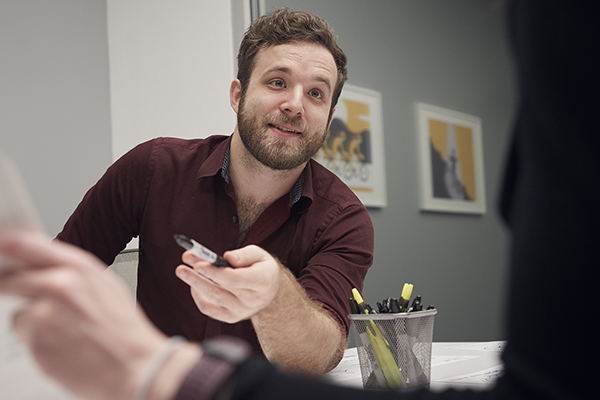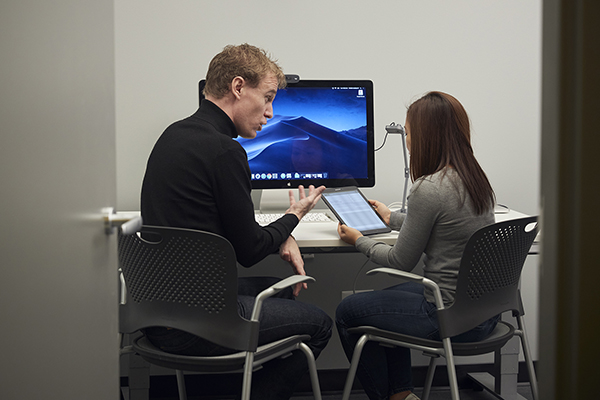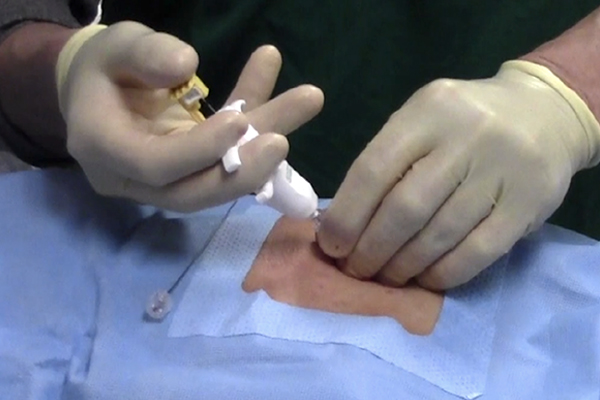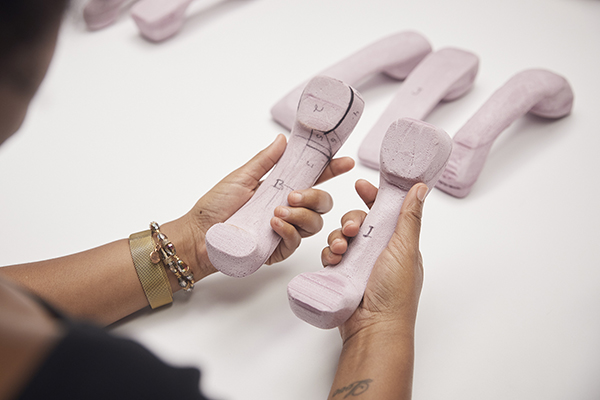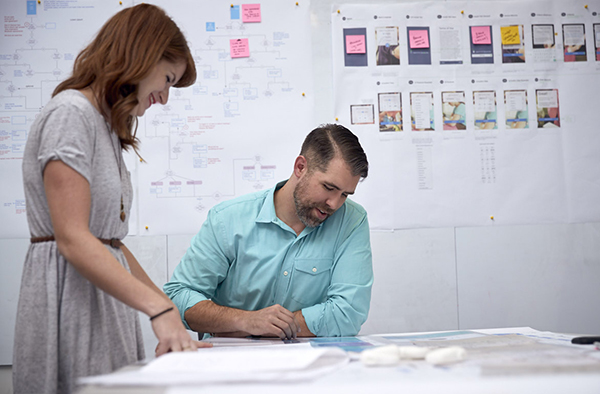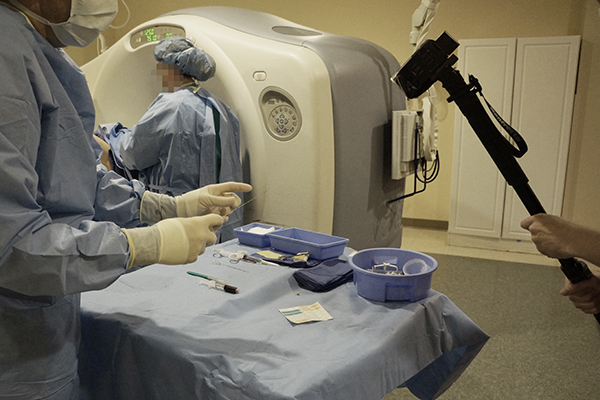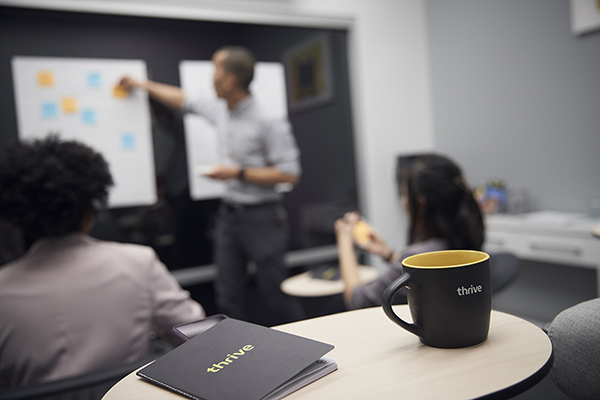Human Factors Engineering: A Mini-Guide to Selecting The Right Consultant.
Even the most seasoned teams can use outside help — especially when it comes to Human Factors Engineering (HFE), which – in some industries – is highly regulated and demands an equally specific kind of experience. While the particular product needs drive the scope of activities for each project, the right human factors engineering consultant will augment your team’s capabilities with excellent ergonomics, user interface design, usability engineering, risk management, usability testing, and whatever else you might need.
Regardless of the products you are developing, users deserve to have a great experience interacting with your product in the real-world. In medical device design and development, the safety and regulatory concerns are of the utmost importance, but optimizing the user experience translates across every industry. Applying human factors engineering ensures your customer experience goals are met while enabling you to develop an intuitive product that mitigates human error and is satisfying to use and – when appropriate – meets regulatory and safety standards.
The 3 Primary Types of Human Factors Engineering Consultants
You have several options for consulting outside human factors experts; however, the best approach is to account for Human Factors from the project’s onset to save precious time and money. Particularly in the healthcare industry with an ever-changing regulatory landscape, it’s cheaper, faster, and wiser to develop your product right the first time — and that’s where your HFE consultant comes into play.
Your three options for hiring human factors engineering (HFE) consultants are:
1. Hiring an individual human factors expert
Hiring a lone HFE consultant can work if your needs are contained and you need to assist your current human factors team, or if the individual consultant has a specialized skill set that is required for a specific part of the project. This option does come with a few risks: difficulties scaling to meet increasingly complex challenges, or an over-dependence on a single person, with the potential for the project to grind to a halt through a life event or another personal disruption.
2. Hiring a research or design company
One of the more common approaches is hiring a specialized company that focuses on research or new product development. This option reduces the dependency on one individual and brings more minds and ideas to the table. Additionally, working with a company often unlocks other capabilities, such as prototyping and human factors validation testing. However, this approach might result in reduced overall benefit. For example, a consultant specializing in human factors design might produce great designs but be less confident synthesizing research findings. Conversely, a consultant that specializes in human factors research might collect rich user insights into product interactions or the work environment but be unable to instantiate relevant design changes and recommendations in the form of design mock-ups for later evaluation.
3. Hiring an end-to-end new product development company
The third and final option for hiring a human factors engineering consultant is to work with a full-service new product development company. THRIVE, for example, is a product development and innovation strategy firm with an end-to-end suite of services. We can handle everything from design research and insight-gathering to industrial design, system design, and engineering, and, of course, human factors.
As an ISO-9000 certified firm, we design products ranging from complex medical devices to consumer goods. THRIVE Labs, our cutting-edge usability lab, compliments THRIVE’s ideation, rapid prototyping, innovation strategy, UX, and product development, so your team can enjoy total support throughout the design process. We’re biased towards the third option when it comes to hiring a human factors engineering consultant; however, the reason is that human factors engineering demands a high level of consistency throughout the product development process — more difficult to find in a specialized company or individual as opposed to a full-service product development consultancy with human factors expertise
What should you look for in a human factors engineering consultant?
As with any other decision, there are many factors to consider when searching for a human factors consultant. However, we think that four primary factors stick out as the most important:
1. Experience applying human factors in industry
Particularly in the medical device industry, applying human factors is regulated heavily. However, every medical device is different and should be treated as such when approaching, developing, and scoping a human factors research program. You’ll need to determine which pathway is appropriate for your particular product. Experience with the regulatory landscape is critical here. If you do not complete human factors activities correctly, your submission might be susceptible to being rejected by the Food & Drug Administration (FDA) or relevant governing body, causing much rework – or in other words, lost time, money, and resources.
2. Knowledge of end-users
Okay, so we just mentioned experience. But, the human factors consultant also needs to be deeply knowledgeable about all aspects of the product they’re working on, including solid knowledge of their users and any relevant cognitive or physical considerations that might impact their product interactions. For instance, in medical device design, human factors consultants must fully understand how certain medical conditions affect users and how such conditions impact users’ abilities and product interactions. These design implications can be complex, but they are paramount for bringing a product to market that is developed with empathy, safe and satisfying for users, an improvement to patient well-being, and commercially successful.
3. Flexibility as a research and development partner
Flexibility matters. Product development is a rapidly changing field, and you will almost undoubtedly experience prototype delays, challenges with participant recruitment, and methodology changes, among other challenges. Your human factors engineering consultant has to be flexible and willing to work as a team alongside you, provide counsel and expertise, and know how to apply that adaptive thinking at the right moments.
4. Knowledge of design and human factors principles
Knowledge of your end-users is essential, but knowledge of both design principles and human factors principles is also critically important. So much of good product design, particularly when thinking about work design and usability, is rooted in understanding human behavior. How do people perceive information, process that information, and then take action? And, another aspect of good user-centered product design is in the design itself. Does the design exemplify sound human factors principles that align with users’ natural processes and instincts? Engaging a human factors engineering consultant with knowledge of human factors and design principles will provide you with a proven source of design expertise (e.g., based on formative test results), a deep understanding of why particular use errors might occur (e.g., based on root cause analysis), or identification of “low hanging fruit” early in your development process (e.g., based on the results of an HF design critique).
What should you avoid in a human factors engineering consultant?
In some ways, designing intuitive products seems like common sense. However, there are nuances associated with applying human factors that require a particular type of expertise. If you’re the developer of a product that needs to meet specific regulatory requirements involving patient safety, avoid human factors consulting partners that aren’t up to date with such standards and processes. In many cases, the landscape shifts so quickly that only a domain committed human factors expert will be up to date on the latest expectations.
Although similarities are associated with the end-user research aspects of market research and human factors, avoid groups that specialize in market research or other research specialties and think it will be sufficient for human factors research. While there is some overlap, like working with intended end-users and seeking feedback about a product, human factors is rooted in cognitive psychology and behavioral science, understanding a users’ abilities, and focused on occupational safety and effectiveness in a specific industry.
Also, the way you ask questions to users as a human factors engineering consultant is intentionally constructed to be unbiased, facilitating impartial and honest feedback in return. Conversely, individuals who don’t have a human factors focus might take a different approach due to competing priorities, lack of experience, or wiggle room in their particular industry.
For example, a researcher unfamiliar with the workflow of human factors research techniques might ask:
“Do you like this product?”
While the Human Factors specialist would ask:
“What are your impressions of the product, thinking about whether you like or dislike it?”
The difference between these two questions is critical. The first one is leading — even if it seems to be somewhat open-ended. The second doesn’t infer preference and instead provides the user with the opportunity to respond with their true feelings.
What are the most common mistakes when it comes to finding the right Human Factors Engineering Consulting Partner?
One of the most common mistakes people and companies make when finding the right human factors engineering consulting partner is choosing a partner based solely on the lowest priced services. Companies need to remain on a budget for a successful development effort. However, in some cases, the price can be a game of “what you see is what you get,” and paying a slightly higher price will result in a higher quality of work and expertise. Particularly in the medical device industry, human factors deliverables and submissions that are lower quality or do not meet industry standards are vulnerable to rejection by the FDA or other notified bodies, requiring expensive rework and delays in bringing the product to market.
Peripherally, another mistake is choosing a human factors consultant too late in the process. Effective human factors initiatives start at the beginning of a new product development effort. However, medical device manufacturers who are less familiar with human factors sometimes realize they need to meet a requirement after they’ve already completed their development effort and are ready to seek market approval. At this point, late-stage human factors activities (e.g., HF validation testing) are seen as an obstacle rather than an opportunity. If you integrate human factors into the program from the onset, you mitigate risks and other challenges during the development process. As a result, by the time validation testing begins, you will have everything you need.
How is a human factors engineering consultant in medical devices different from a general human factors expert?
Developing a safe and effective product is arguably the most significant factor in applying human factors engineering for medical devices. The aviation and automotive industries and even some consumer goods are regulated, but in medical, it’s of the utmost importance: the FDA and regulatory bodies in other countries have specific requirements for medical devices. Conversely, applying human factors in other industries, such as consumer electronics, is typically less regulated and focuses on usability rather than outright safety. Therefore, a human factors consulting partner who has medical expertise understands the nuances of patient safety and has situational awareness of the use environment, the end-user, and regulatory pathways can guide you on how all these nuances will affect how you apply Human Factors.
3 Steps for finding the perfect Human Factors Engineering Consulting Partner
1. Reach out to a selection of potential human factors partners. Talk to various potential partners and learn what their capabilities are. Review their case studies and see if their past work is similar to the product and conditions for which you’re seeking human factors support.
2. Get to know your top partner candidates. Human Factors is extraordinarily collaborative, so you want to ensure that your consulting partner communicates clearly, is flexible, and works well with your team.
3. Finalize your HF consulting partner. Once you feel strongly about a Human Factors consultant, establish the parameters of the project, set your goals, and get started!
Conclusion
Human Factors is complex with an ever-evolving regulatory landscape — perhaps more so now than ever. With years of experience, our Human Factors experts can help you respond to these changes and develop human-centered products to keep your business on track today and into the future. Contact THRIVE today.
________________________________________________
ABOUT THRIVE
THRIVE’s Human Factors professionals have decades of experience applying Human Factors to products ranging from medical devices used by specialized healthcare professionals in clinical environments to combination products used by laypeople in the home.
If it’s your first time applying Human Factors and you need a comprehensive end-to-end Human Factors program, we’ll scope out the program and conduct the activities on your behalf, leaving you time and resources to focus elsewhere. If you’re a resource constrained HFE professional, we’ll step in, providing the teamwork, collaboration, and support to help you meet your goals. Or, if you just want a final sanity check to ensure you’ve met the latest and greatest expectations, we’ll do that too.
Atlanta | Chicago | Pittsburgh
People Also Ask These Questions About Human Factors Engineering Consultants
Q: How can human factors engineering improve product design?
A: Human factors engineering can significantly improve product design by focusing on user-centered design principles. This approach ensures that products are intuitive, easy to use, and meet the needs of the target audience. By considering human capabilities and limitations, designers can create safer, more effective, and more enjoyable products.
Q: What are the benefits of hiring a human factors engineering consultant?
A: Hiring a human factors engineering consultant offers several benefits, including enhanced user satisfaction, reduced errors and accidents, improved productivity, and compliance with industry standards and regulations. These consultants bring specialized knowledge to optimize designs, making them more user-friendly and efficient.
Q: What industries benefit from human factors engineering consulting?
A: Many industries benefit from human factors engineering consulting, including healthcare, automotive, aerospace, consumer electronics, and manufacturing. In healthcare, for example, optimizing medical devices and systems can lead to better patient outcomes and reduced errors. In automotive, improving vehicle interfaces can enhance driver safety and experience.
Q: How does human factors engineering contribute to safety?
A: Human factors engineering contributes to safety by designing systems and products that account for human behavior and limitations. This includes creating intuitive interfaces, minimizing the risk of human error, and ensuring that safety features are easily accessible and understandable. By prioritizing human factors, designers can create safer environments and products.
